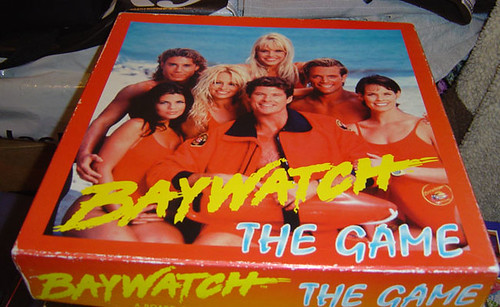[There are some games you shouldn't play - image http://www.flickr.com/photos/whatwhat/8457309/]
Gamification comes up a lot in higher education. It's a by-product of a metrics driven economy, as soon as you meaure something, and add value to that measurement, then people will find ways to gamify it. The measurers often know this, and the trick is if you can get people to do the desired behaviour through gaming, then it's worthwhile, for instance good assessment will mean that learners end up acquiring desired skills and knowledge, even if they game the system. But too often, gaming itself becomes the focus.
The following are all aspects of gaming for higher education:
- Assessment gaming - are there ways of getting good scores in assessment with minimal effort?
- Teaching - are there ways of getting good scores in the National Student Survey? Can we find ways around contact hours?
- Learner analytics - if you start measuring performance through 'data exhaust', and attaching value to it, then it stops being exhaust, a by-product of natural behaviour and becomes a deliberate action. For instance if time spent in the VLE is a measure used to automatically monitor students, they will soon log on for long periods, while they go to the pub.
- Research metrics - the REF is essentially a very expensive exercise in gaming. Universities game it by buying in good REF researchers just before the REF deadline, sacrificing some staff for others (eg put your name first because that person isn't going to be refable) or moving non-eligible staff to teaching contracts. Individuals game it by getting their papers cited (self-citation, mutual citation circles), getting students to publish papers with their names, and publishing in targeted journals.
- Online identity - methods of increasing blog traffic, gaining reputation, getting attention.
It's quite a depressing list, you could spend all of your time being concerned with gaming and not with the actual work it is meant to represent. All these was brought into focus for me by this great blog post from author Paul Raven. A wannabe ebook author writes to him asking for advice on how to get improve sales. The potential author asks:
"Why not start a Facebook Group: “The EBook Likers?” Join the group, and you pretty much agree to go around and LIKE all the other Member’s eBooks which are on Amazon. The Power of LIKE!"
And he goes on, excitedly:
"Something like this goes on every day at Twitter... The I’ll-star-your-tweets-if-you-star-my-tweets factor. Most tweeps on Twitter rarely, if ever, favorite any tweets at all. But there is an in-bred niche of super-favoriters who go to Favstar to track exactly how many stars and retweets each of their tweets get.
By analyzing the data, it becomes clear that the Favstar Superstars don’t achieve their status with superior content, but with superior networking. Take any Favstar Superstar and examine several of their tweets in detail, and you will find the exact same avatars always at the beginning thirty spots, with just a few odd avatars; the further up the number of stars a tweet gets, the more variety in avatars."
He continues with lots of such possibilities and questions. As Raven points out, he never mentions his writing once, and asks nothing about the craft of writing. It's a sad example of how gamification becomes the focus itself.
Raven offers this sage advice:
"There’s one thing that might make your book sell better, though — and that’s making it a better book. Or making a new book that’s better than the last, and another one that’s even better than that, and then another and another. And sending them out, whether to agents or editors or straight into the whirlpool of the Kindle store, and letting them speak for themselves, while you wait at home patiently, writing the next one."
That is the key for me. Whether it's blogging, teaching or writing research papers, the thing to focus on is the quality of the activity itself. Sure, there are some things that are easy and worth doing - I use images in blog posts because I think it may attract attention, and I tweet a link to my posts when I publish them, I tend to blog during weekdays as no-one reads at weekends, etc. I want people to read my posts, I just don't want to fundamentally alter the nature of what I do to achieve that end. So, for instance, I don't play games such as trying to create controversy to get hits, or breaking posts up into shorter ones on the basis that more posts create more traffic, or spend time promoting posts in other forums.
But it's an easy trap to fall in to - the next time I find myself thinking, or sitting in a meeting discussing, methods of gamification, I'll remember that needy writer in Raven's post. That way lies madness.


I really appreciate this post. I’ve been looking all over for this! Thank goodness I found it on Bing. You have made my day! Thanks again!
www.wayneelsey.com/believe/where-passion-meets-experience/
Posted by: John Hursan | 01/01/2013 at 08:57 AM